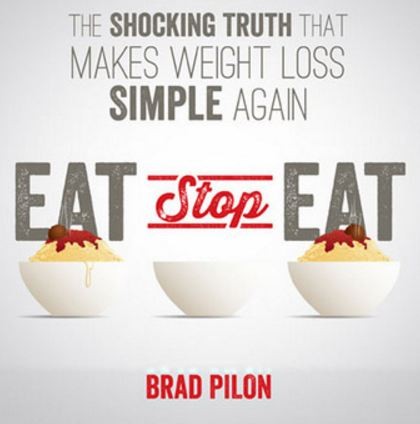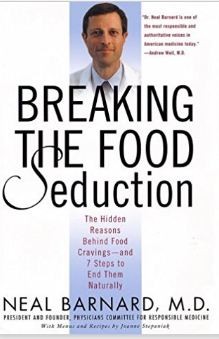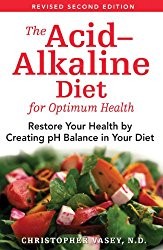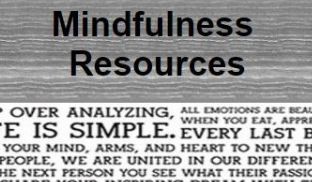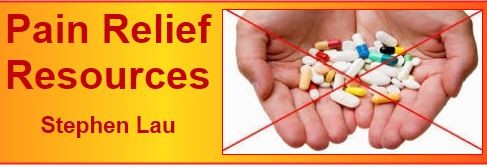
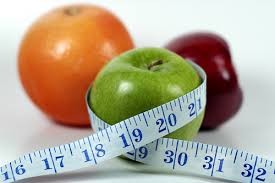
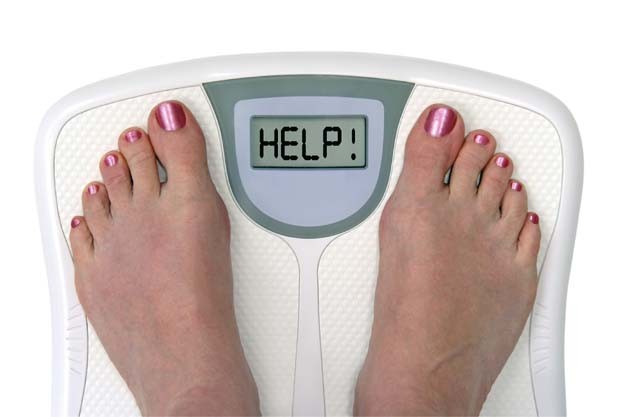
Weight Management
Resources
Stephen Lau
Resources
Stephen Lau

If you wish to live longer, manage your body weight. Weight management holds the key to healthy longevity; it is the soul of your well-being. An ideal body weight is anti-aging. Losing a few extra pounds may add a few extra years to your lifespan. You may want to lose weight, just like everybody else. In fact, weight management is of such paramount importance that Americans are spending billions of dollars every year just to keep them in better shape. Sadly, many are lost in this battle of the bulge.
Forget about losing weight; focusing on weight loss is forever futile and frustrating. That said, weight management is important. Your body shape is a reflection of your overall health. Good weight management is important to healthy longevity.
First and foremost, understand the basics of weight loss.
Basics of weight loss
Why your body weight is “unimportant.”
The bathroom scale just indicates your body weight, and that is all there is to it. It does not tell you how much fat or muscle you may have lost during a given diet or a certain time frame. It may not even indicate if you are healthy or not, unless you are grossly overweight. Therefore, do not become obsessed with your weight. After all, your body weight always fluctuates --which is a fact, and which is very normal.
Body metabolism
When you go on any diet to lose weight, your body metabolism immediately starts to react and begins to slow down, and that accounts for the initial weight loss in any diet program -- there is nothing to be excited about, and do not jump to the conclusion that the diet program works.
Remember, your body burns fewer calories when you eat less. However, when you stop dieting or resume bingeing, your metabolism rate goes up again -- unfortunately, not to its original level, but usually to a much higher level. If you jump from one diet to another, your body metabolism rate might become impaired due to repeated fluctuations, such that it would no longer burn fats efficiently. That explains why you might still gain weight even when you eat less, because your metabolism has gone hay-wired. Does that make sense?
METABOLIC COOKING: It provides 250 fat-burning recipes for fat-loss in a built-in nutritional system for your convenience. It automatically varies your nutrient sources with correct food combinations to combat metabolic slowdown.
Fasting
When you go on a fast, you lose some weight, but you will gain back all the weight lost once you resume eating. The only difference between a fast and a fad diet is that in fasting, your metabolism may make some long-term changes or adjustments that will ultimately benefit your weight loss, while a fad diet results in impaired metabolism.dy s In addition, fasting detoxifies your internal body system,
EAT Stop EAT: It boosts fat-burning hormones, and activates genetic code that controls permanent weight loss. It shows you how to eat below certain threshold of calories for maximum weight management. It cleanses and detoxifies your body's own self-healing protocol. It increases your muscle quality and quantity.
Muscle mass
Exercise regularly to increase muscle mass.
Given that lean muscle mass requires calories at times of rest, the amount of muscle you maintain directly affects your metabolism in a positive way. You burn calories while you sleep. In other words, the more muscle mass you have, the higher your metabolism rate is, and the more calories you will burn while sleeping. The converse is also true: as you lose your muscle mass, your metabolism rate decreases, and so does your weight-loss rate. On the other hand, fat, being inert, has little or no effect whatsoever on your body’s rate of metabolism. These are the weight loss fundamentals for better understanding of how you may gain or lose weight.
The maximum amount of weight loss (fat or muscle) in one day is about one half pound. Since your body is about 60 percent water and one gallon of water weighs approximately eight pounds, any additional weight loss greater than one half pound may only be water, and not your body fat. Therefore, when your body replaces the water lost, weight gain will re-occur, and you are right back to where you started at an unhealthy weight. Does that sound familiar to you in your futile attempts to lose weight?
The unpleasant facts
Consider this: 3,500 calories equal one pound of your body weight.
Do your math: To lose 10 pounds, you have to expend 35,000 more calories than you normally consume; and to lose 10 pounds in two weeks, you need to burn 2,500 more calories a day. You know very well that it is not a piece of cake! That explains why many forever cannot lose weight, not to mention managing it. So forget about weight loss!
Why losing weight is forever “impossible”!
To lose weight is impossible to many individuals because they have become obsessed with numbers. They are forever playing the losing game of numbers. They have to count their calories, their carbohydrates, and their proteins, among others. Profit-making dietary plans allure them with numbers, both “hard” and “soft” data, to the land of myths and fallacies, where they end up only in frustration and disappointment.
Remember this simple factor: weight loss occurs only when the calories you consume are less than the calories you use up. That is the most fundamental factor in weight loss, and also one most difficult to achieve.
Simply put, all weight-loss diets want you to eat less, but you stubbornly refuse, and that is why you fail to lose weight despite the money and initial efforts you expend. Do not try to circumvent this simple ruling. If you cannot overcome your food cravings, your battle of the bulge is already lost and over.
Remember, overweight is a result of consuming too many calories. To lose weight you must maintain lower calorie consumption indefinitely. Not just for a certain period but permanently! Many people simply fail on that score. Do you have that tenacity and perseverance? If you had, you probably would not have any weight problem in the first place.
Bottom line: overcome food addiction!
Forget about losing weight; focusing on weight loss is forever futile and frustrating. That said, weight management is important. Your body shape is a reflection of your overall health. Good weight management is important to healthy longevity.
First and foremost, understand the basics of weight loss.
Basics of weight loss
Why your body weight is “unimportant.”
The bathroom scale just indicates your body weight, and that is all there is to it. It does not tell you how much fat or muscle you may have lost during a given diet or a certain time frame. It may not even indicate if you are healthy or not, unless you are grossly overweight. Therefore, do not become obsessed with your weight. After all, your body weight always fluctuates --which is a fact, and which is very normal.
Body metabolism
When you go on any diet to lose weight, your body metabolism immediately starts to react and begins to slow down, and that accounts for the initial weight loss in any diet program -- there is nothing to be excited about, and do not jump to the conclusion that the diet program works.
Remember, your body burns fewer calories when you eat less. However, when you stop dieting or resume bingeing, your metabolism rate goes up again -- unfortunately, not to its original level, but usually to a much higher level. If you jump from one diet to another, your body metabolism rate might become impaired due to repeated fluctuations, such that it would no longer burn fats efficiently. That explains why you might still gain weight even when you eat less, because your metabolism has gone hay-wired. Does that make sense?
METABOLIC COOKING: It provides 250 fat-burning recipes for fat-loss in a built-in nutritional system for your convenience. It automatically varies your nutrient sources with correct food combinations to combat metabolic slowdown.
Fasting
When you go on a fast, you lose some weight, but you will gain back all the weight lost once you resume eating. The only difference between a fast and a fad diet is that in fasting, your metabolism may make some long-term changes or adjustments that will ultimately benefit your weight loss, while a fad diet results in impaired metabolism.dy s In addition, fasting detoxifies your internal body system,
EAT Stop EAT: It boosts fat-burning hormones, and activates genetic code that controls permanent weight loss. It shows you how to eat below certain threshold of calories for maximum weight management. It cleanses and detoxifies your body's own self-healing protocol. It increases your muscle quality and quantity.
Muscle mass
Exercise regularly to increase muscle mass.
Given that lean muscle mass requires calories at times of rest, the amount of muscle you maintain directly affects your metabolism in a positive way. You burn calories while you sleep. In other words, the more muscle mass you have, the higher your metabolism rate is, and the more calories you will burn while sleeping. The converse is also true: as you lose your muscle mass, your metabolism rate decreases, and so does your weight-loss rate. On the other hand, fat, being inert, has little or no effect whatsoever on your body’s rate of metabolism. These are the weight loss fundamentals for better understanding of how you may gain or lose weight.
The maximum amount of weight loss (fat or muscle) in one day is about one half pound. Since your body is about 60 percent water and one gallon of water weighs approximately eight pounds, any additional weight loss greater than one half pound may only be water, and not your body fat. Therefore, when your body replaces the water lost, weight gain will re-occur, and you are right back to where you started at an unhealthy weight. Does that sound familiar to you in your futile attempts to lose weight?
The unpleasant facts
Consider this: 3,500 calories equal one pound of your body weight.
Do your math: To lose 10 pounds, you have to expend 35,000 more calories than you normally consume; and to lose 10 pounds in two weeks, you need to burn 2,500 more calories a day. You know very well that it is not a piece of cake! That explains why many forever cannot lose weight, not to mention managing it. So forget about weight loss!
Why losing weight is forever “impossible”!
To lose weight is impossible to many individuals because they have become obsessed with numbers. They are forever playing the losing game of numbers. They have to count their calories, their carbohydrates, and their proteins, among others. Profit-making dietary plans allure them with numbers, both “hard” and “soft” data, to the land of myths and fallacies, where they end up only in frustration and disappointment.
Remember this simple factor: weight loss occurs only when the calories you consume are less than the calories you use up. That is the most fundamental factor in weight loss, and also one most difficult to achieve.
Simply put, all weight-loss diets want you to eat less, but you stubbornly refuse, and that is why you fail to lose weight despite the money and initial efforts you expend. Do not try to circumvent this simple ruling. If you cannot overcome your food cravings, your battle of the bulge is already lost and over.
Remember, overweight is a result of consuming too many calories. To lose weight you must maintain lower calorie consumption indefinitely. Not just for a certain period but permanently! Many people simply fail on that score. Do you have that tenacity and perseverance? If you had, you probably would not have any weight problem in the first place.
Bottom line: overcome food addiction!
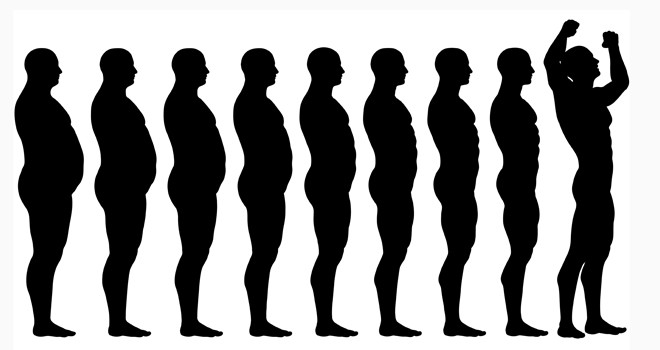
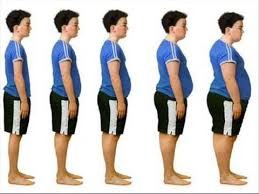
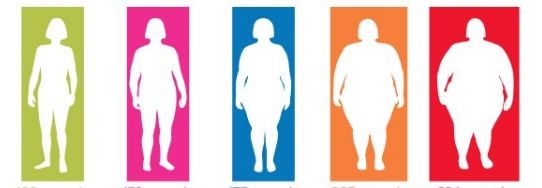
Exercise in less than 90 mins per week to build muscles and lose body fat fast.
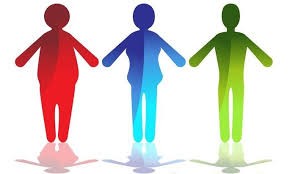
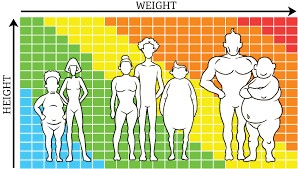
Not just a cookbook but a collection of recipes of all the junk foods you may crave!
Weight management
You must understand how the human body works, and what it needs to lose weight. You must understand what causes hunger.
A lack of calories may make you feel hungry, just as eating many more calories may still make you feel hungry.
Why is that?
Your body simply does not count calories; only you consciously do; you want to lose weight -- your body stubbornly does not! That is the problem with weight management.
To lose weight, you must eat less, and eating less makes your feel hungry. If you cannot overcome your pangs of hunger, you cannot lose weight. So to lose weight, you must stop, not overcome, the hunger: overcoming hunger requires a will of steel, which most probably you don't have, while stopping hunger may be easier.
Your feeling of hunger is triggered by your nutrient deficiency and your food addiction, not by your calories or lack of them.
If your body is healthy and full of nutrients, such as aloe and turmeric, your abnormal food cravings will naturally subside, if not cease. You will eat what you need, instead of eating what you want to eat. You will eat when you are hungry, instead of eating for the sake of eating or eating to gratify your urge. Surprisingly, your body wisdom intuitively knows your own nutritional needs. Learn to trust your own body, not a calorie chart! If you are healthy, you will not have any problem to lose weight. Simply put, if you are hungry all the time, you are unhealthy, and you may have other health problems to deal with, not just a body weight problem.
Remember, any diet is not natural eating. Any abnormal eating may cause you to form unhealthy food relationship, a precursor of eating disorders.
Changing eating habits
Change some of your eating habits in order to lose weight:
Chew more while eating, and feel less hungry by sending a “fullness” signal to your brain.
Eat more fiber, giving your stomach nerves a “bulky” as well as “satisfying” sensation.
Stop eating processed foods, designed by food manufacturers to make you “feel” hungry and want more all the time.
Taking important nutrients for weight management
Eating only natural foods provides you with nutrients and fiber to satisfy your hunger and food craving.
A balanced acid and alkaline diet contributes to balanced minerals in your body - an important factor in healthy eating.
Mindfulness
Be mindful of what you eat, because you are what you eat and you become what you eat.
Be mindful of how you eat: more attention to the chewing process, instead of watching the TV or talking on the phone
Be mindful of some of the more common symptoms of nutrient deficiency, which include:
• Bad breath
• Body odor
• Fatigue
• High blood pressure
• Headache
• Insomnia
• Hair loss
• Memory loss
Mind power
Weight management is easier said than done. You need the intent to lose weight, the determination to pursue your goal, the perseverance to overcome all challenges and setbacks; in other words, empower your willpower with affirmations and subliminal messages.
You must understand how the human body works, and what it needs to lose weight. You must understand what causes hunger.
A lack of calories may make you feel hungry, just as eating many more calories may still make you feel hungry.
Why is that?
Your body simply does not count calories; only you consciously do; you want to lose weight -- your body stubbornly does not! That is the problem with weight management.
To lose weight, you must eat less, and eating less makes your feel hungry. If you cannot overcome your pangs of hunger, you cannot lose weight. So to lose weight, you must stop, not overcome, the hunger: overcoming hunger requires a will of steel, which most probably you don't have, while stopping hunger may be easier.
Your feeling of hunger is triggered by your nutrient deficiency and your food addiction, not by your calories or lack of them.
If your body is healthy and full of nutrients, such as aloe and turmeric, your abnormal food cravings will naturally subside, if not cease. You will eat what you need, instead of eating what you want to eat. You will eat when you are hungry, instead of eating for the sake of eating or eating to gratify your urge. Surprisingly, your body wisdom intuitively knows your own nutritional needs. Learn to trust your own body, not a calorie chart! If you are healthy, you will not have any problem to lose weight. Simply put, if you are hungry all the time, you are unhealthy, and you may have other health problems to deal with, not just a body weight problem.
Remember, any diet is not natural eating. Any abnormal eating may cause you to form unhealthy food relationship, a precursor of eating disorders.
Changing eating habits
Change some of your eating habits in order to lose weight:
Chew more while eating, and feel less hungry by sending a “fullness” signal to your brain.
Eat more fiber, giving your stomach nerves a “bulky” as well as “satisfying” sensation.
Stop eating processed foods, designed by food manufacturers to make you “feel” hungry and want more all the time.
Taking important nutrients for weight management
Eating only natural foods provides you with nutrients and fiber to satisfy your hunger and food craving.
A balanced acid and alkaline diet contributes to balanced minerals in your body - an important factor in healthy eating.
Mindfulness
Be mindful of what you eat, because you are what you eat and you become what you eat.
Be mindful of how you eat: more attention to the chewing process, instead of watching the TV or talking on the phone
Be mindful of some of the more common symptoms of nutrient deficiency, which include:
• Bad breath
• Body odor
• Fatigue
• High blood pressure
• Headache
• Insomnia
• Hair loss
• Memory loss
Mind power
Weight management is easier said than done. You need the intent to lose weight, the determination to pursue your goal, the perseverance to overcome all challenges and setbacks; in other words, empower your willpower with affirmations and subliminal messages.
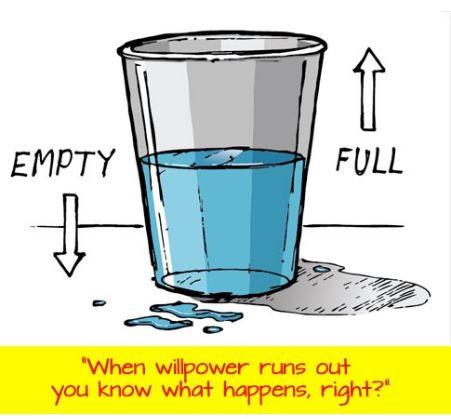
Stephen Lau
Copyright© by Stephen Lau
Copyright© by Stephen Lau
